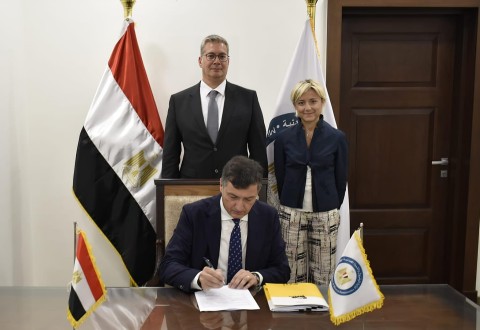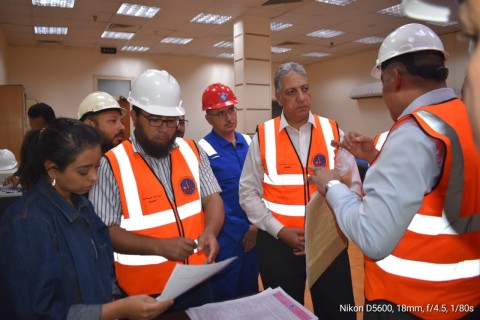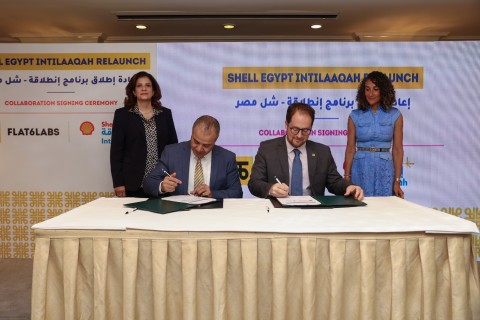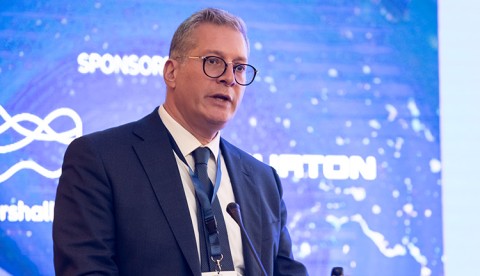For years, the Egyptian oil and gas industry has grappled with a significant challenge: the skills gap. This arises when the expertise of the current workforce fails to align with the evolving demands of the industry, often due to factors such as an aging workforce and rapid technological advancements. Nevertheless, Egypt’s oil and gas sector has made significant strides, actively engaging in ongoing training and development initiatives while also exploring strategies to attract and retain the next generation of talent.
The Skills Gap Challenge
The energy industry faces a perfect storm of talent challenges as the transition to clean energy accelerates, driven by groundbreaking technologies. This is further complicated by an aging workforce exiting the sector, the emergence of new digital roles, and the lure of the technology sector for skilled professionals. If left unaddressed, this skills gap could indirectly lead to safety risks, and production inefficiencies, and hinder the industry’s overall potential. Therefore, recruiting, retaining, and upskilling the workforce and ensuring a diverse workforce to bridge skill gaps is critical for the sustainability of the energy industries.
As Egypt delves into new areas in the energy industries, such as renewable energy and green hydrogen, it becomes crucial to train the existing workforce and the coming generations to be ready and cope with the energy transition. Training equips the existing workforce with the necessary skills to adapt to these new areas. This can involve learning about new technologies, safety protocols, and operational procedures specific to – but not limited to – hydrocarbon and green hydrogen production. Meanwhile, building a skilled pipeline for future generations ensures there’s a readily available workforce to support Egypt’s long-term energy goals. Educational programs and vocational training focused on these new energy sectors can prepare young people for upcoming opportunities.
Bridging the Gap
The Egyptian Ministry of Petroleum and Mineral Resources (MoPMR) has been working hand in hand with its international and national partners to develop human capabilities within the oil and gas sector. The third pillar of the Modernization program, which is adopted by the sector since 2016 to modernize and develop it, focused on the human resources management. The program aims at managing talents across different levels, focusing on the middle management development program; capacity building; and setting clear career path. The program is set to maximize the optimal use of human capabilities in the sector, developing and raising the efficiency of workers, and developing modern systems for human resources management so that efficiency is the determining element for evaluation in the sector.
To date, the MoPMR managed to develop a succession plan to choose top leaders; and launch the Middle management program with the help of top universities and international oil companies (IOCs). The MoPMR has also succeeded in establishing a unified database for sector employees; developing a methodology analyzing human capital, and highlighting health, safety and environment (HSE) to be a part of the sector’s core values through training.
Additionally, several sector companies are working to develop human capabilities by providing training programs. For example, earlier in 2024, Assiut National Petroleum Manufacturing Company (ANOPC) has announced the launch of an operational capacity building program, with the attendance of Minister of Petroleum and Mineral Resources, Tarek El Molla. The program aims to boost the operational capabilities of newly graduated engineers and technicians in Assiut Governorate. It comes within the framework of the Egyptian petroleum sector’s plans to develop its human resources and is in line with the state’s strategies to improve the economic, social, and environmental aspects of Upper Egypt. The program is composed of comprehensive training and qualification work for young graduates and building capabilities, skills, and experiences that qualify them to carry out operation and maintenance work for the hydrocracking complex.
Moreover, on the sidelines of the Egypt International Petroleum Conference and Exhibition (EGYPS 2023), the MoPMR signed a number of agreements and memoranda of understanding (MoUs) for capacity building with several international companies, including Kuwait Energy Egypt; and Chevron.
Meanwhile, in July 2023, ENAP Sipetrol Egypt, in cooperation with MoPMR, launched the Process Safety Capacity Building Program Wave Two. The program is designed to train around 70 carefully chosen trainees from national oil and gas companies. The curriculum aligns with the latest international process safety management standards, equipping participants with the knowledge and skills to promote safe operations and ensure the long-term sustainability of production processes within the oil and gas industry.
The Egyptian oil and gas industry faces a crucial challenge in the form of a skills gap. However, this obstacle presents an opportunity for transformation. The MoPMR’s commitment to human capital development is a promising step. Initiatives like the Modernization Program and the Process Safety Capacity Building Program underscore the government’s understanding of the need for a skilled and adaptable workforce. Additionally, industry-specific programs demonstrate a collaborative approach, ensuring young talent is equipped with the latest knowledge and enhanced skills.








